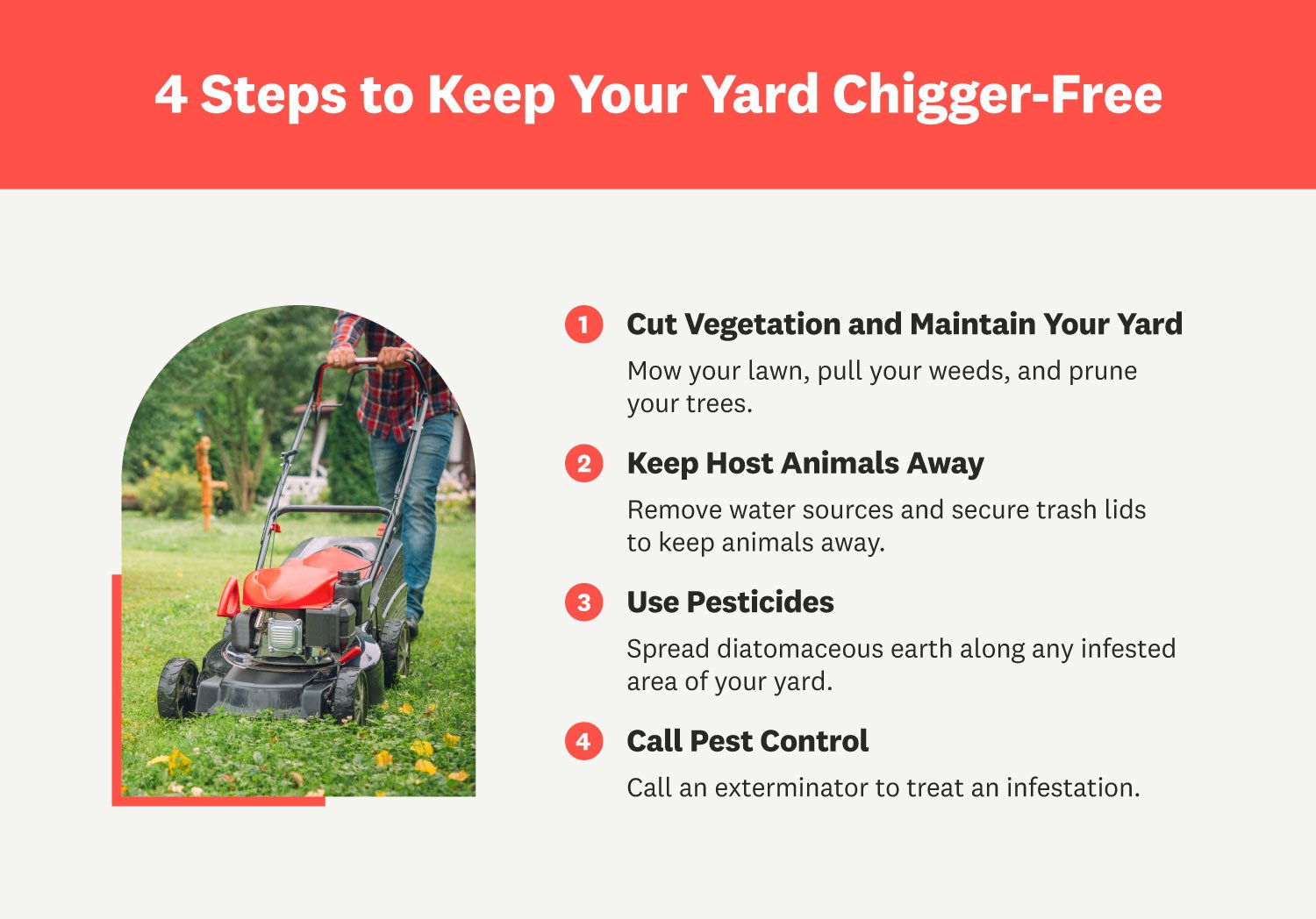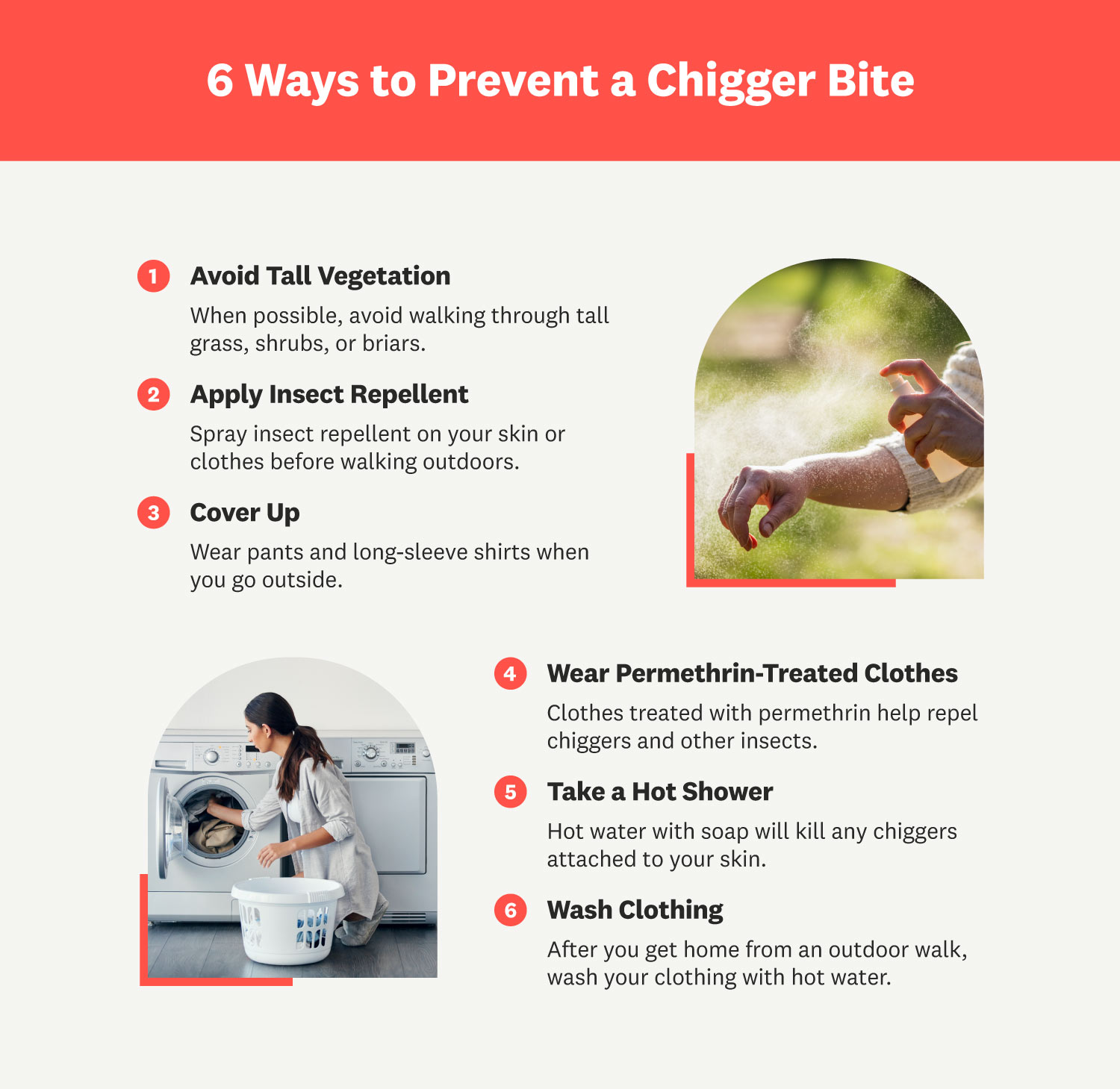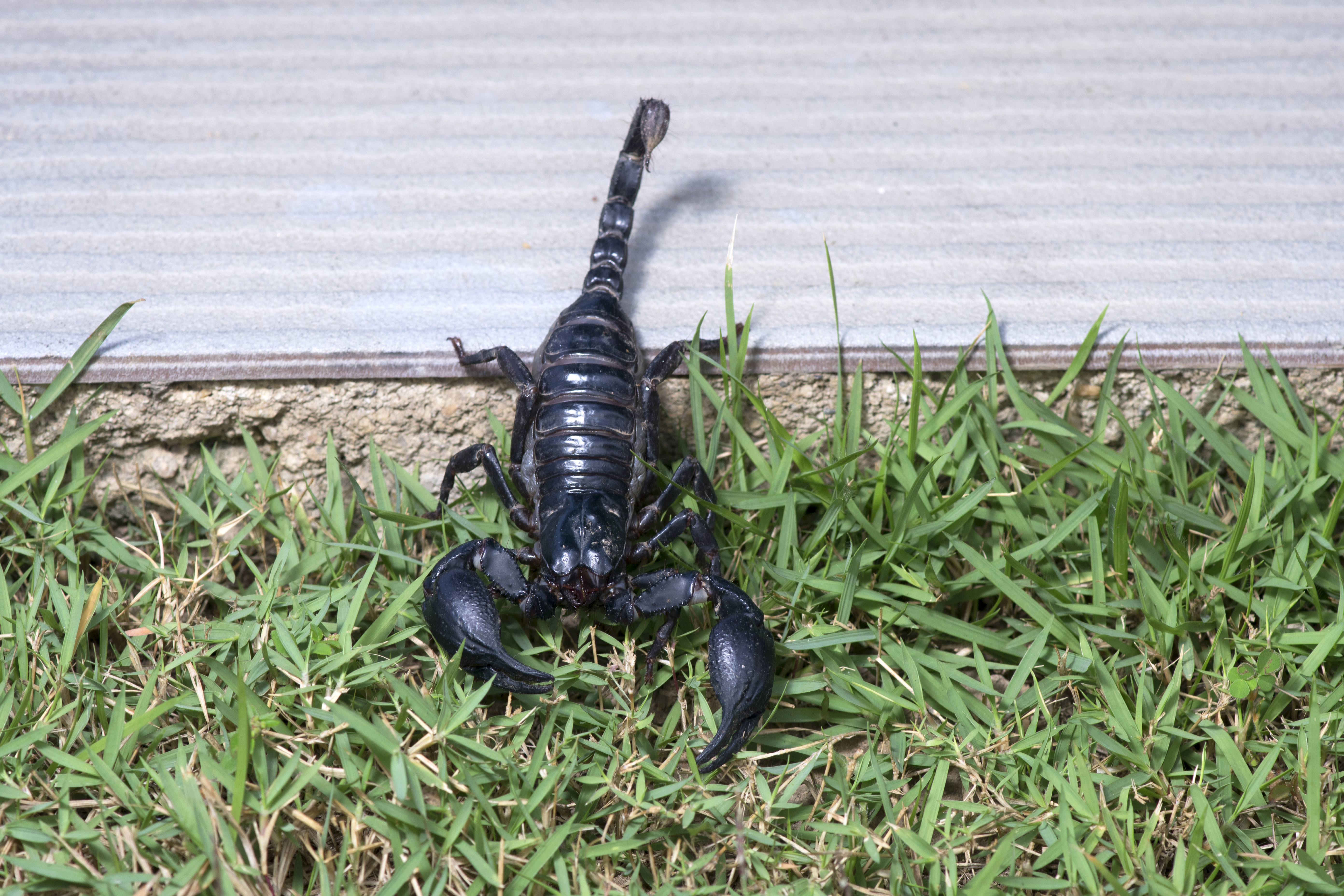
How much does bee removal cost? Learn what you’ll pay based on factors like hive location, size of the infestation, extermination or removal, and more.
Say goodbye to chiggers and hello to a pest-free yard


Typically, people don’t realize they have a chigger infestation in their yard until it’s too late. They feel an intense itchy sensation, check their ankles, and find little red bumps, blisters, or even a rash. While these bites aren’t dangerous, they’re uncomfortable and can take weeks to heal.
To stay itch-free, there are several ways you can get rid of chiggers in your yard or home. For everything you need to know about chiggers, where they typically nest, and how to get rid of them, check out our complete guide below.

Chiggers are tiny red mites classified as arachnids like spiders and ticks. Also known as harvest mites or harvest lice, chiggers are nearly microscopic and invisible to the naked eye.
While adult chiggers don’t bite, larvae do. Their bites result in red bumps that can itch intensely for days or weeks. If you scratch the bites too vigorously, they can become infected.
Luckily, you can follow a few simple steps to keep your home pest-free. But first, you need to know where chiggers normally live.

Chiggers are attracted to heavy vegetation, moist grassy areas, and shade. This means if you’re going for a hike or walking in the park, you'll want to avoid tall grass and thickets near lakes or streams.
Near your home, chiggers could thrive in areas with overgrown grass, shrubs, weeds, or briars. Since they prefer hot, humid environments, they are typically more active in the spring and summer, depending on where you live.

The more plants overflowing around your yard, the more likely you are to attract chiggers and other pests. Luckily, there are several steps you can take to fend off the pesky red pests.
Your first line of defense against chiggers should be to root out their habitat. Mow your lawn, pull your weeds, and cut back any overgrown trees, briars, or shrubs. Pruning your plants will reduce moisture and shade that chiggers love. Remember to maintain these habits year-round to ensure your yard stays chigger-free.
For easier landscaping that repels pests, you might even want to consider some alternative lawn ideas like gravel or artificial turf.
Common hosts of chiggers include birds, amphibians, rodents, and reptiles. When you get rid of rodents and other critters from your yard, the chiggers are likely to stay away as well.
To discourage animals from your yard, remove sources of water and food while securing your trash can lids. For extra protection, you might even want to install fencing around your yard or decorate with pest-repelling plants.
Applying diatomaceous earth, an organic pesticide, can help drive away chiggers and other small critters inhabiting your yard. Spread the diatomaceous earth anywhere you have tall grass and thick vegetation. While it won’t harm your plants, any chiggers that ingest the substance will die.
When all else fails, an exterminator near you can rid you of your infestation. Pest control professionals have access to stronger pesticides such as propoxur or cyfluthrin that will eliminate any chiggers around your yard. That said, these stronger chemicals could mean you have to regulate your access to the treated area.
Chiggers normally find their way indoors by latching onto your skin or clothing. You might also have a pet that goes outside and attracts chiggers onto its body by walking through tall grass or shrubs.
Once inside, chiggers might take refuge in your furniture, bed, or carpet. In that case, make sure to vacuum and disinfect any surfaces you think are infested.
Keep in mind that chiggers can’t survive indoors for long if they aren’t fed. If they feed for three to four days, they’ll drop off their host and start to molt. However, after they molt, you no longer need to worry about bites since adult chiggers don't feed on skin.

Chigger bites can be itchy, uncomfortable, and unsightly. Luckily, there are several preventative measures you can take:
Avoid tall vegetation: If you’re going for a hike or walking in the park, try to avoid brushing up against tall grass or thickets where chiggers might reside.
Apply insect repellent: Insect repellent helps prevent bites from most insects—including chiggers. Make sure not to miss spraying your ankles since those are a common target for chigger larvae.
Cover up: A layer of clothing helps protect your skin from chigger bites.
Wear permethrin-treated clothes: There are special clothes treated with permethrin specifically designed to repel insects.
Take a hot shower: After walking outdoors, take a hot shower when you get home to kill any chiggers attached to your skin.
Wash clothing: Since chiggers often attach to your clothing, make sure to also wash your clothes after spending time outdoors.
If you suspect an infestation around your home, taking these steps will get you back to enjoying outdoor activities in no time. With consistent lawn maintenance, you can make your yard uninhabitable for the pesky red mites.
You can also hire a professional lawn service company near you to help maintain your yard to keep the pests away.
From average costs to expert advice, get all the answers you need to get your job done.

How much does bee removal cost? Learn what you’ll pay based on factors like hive location, size of the infestation, extermination or removal, and more.

Your mosquito misting system cost will vary based on factors such as the size, type, brand, and more. Find out what the budget for this system looks like.

Snake removal cost comes down to the type and number of snakes you’re dealing with and where they’re located inside your home. This guide breaks it down.

Need to get rid of pesky pantry bugs from your kitchen? Follow our step-by-step guide to learn more.

Pest inspection costs depend on the type of inspection, location, and other factors. Learn more about how much pest inspections cost with this guide.

Scorpions are creepy pests that you definitely don’t want near your living space. Find out how to keep scorpions away from your house.